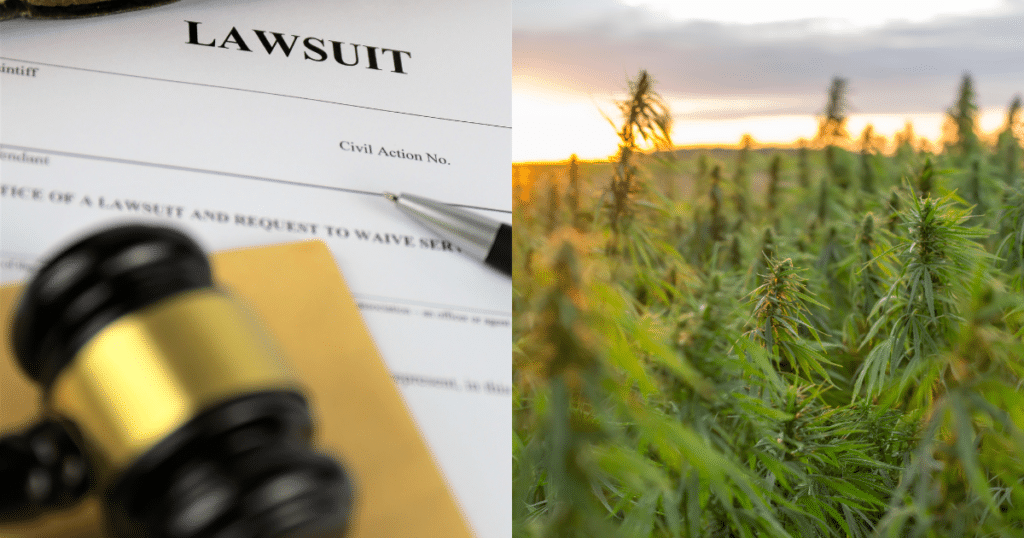Cheech and Chong are taking legal action against the state of California over controversial new hemp regulations. Known for their comedy and love of cannabis, this legendary duo is now focused on a serious issue impacting the California hemp industry. The lawsuit challenges California’s recently enacted emergency regulations that ban any detectable levels of THC in hemp products, a move argued to be overly restrictive and harmful to the hemp industry.
California Emergency Regulation To Restrict THC Hemp Products
California Governor Gavin Newsom recently introduced emergency regulations to ban hemp-derived food, beverages, and dietary supplements that contain any detectable levels of THC in hemp products. The state argues that these measures are necessary for public health and safety, mainly to protect minors from unintended THC exposure. However, the hemp industry views these regulations as extreme and unnecessary, with many arguing that hemp-derived THC products typically contain levels too low to cause psychoactive effects.
California Hemp Industry Sues State
In response to these regulations, Cheech and Chong’s cannabis company, along with the U.S. Hemp Roundtable and other hemp industry players, filed a lawsuit in Los Angeles County Superior Court last week, a day after the emergency regulations were announced.
They argue that the ban is disproportionately harsh and threatens the survival of the state’s hemp industry. The plaintiffs claim that the regulation is as absurd as “requiring candy to stop containing sugar” and criticize the emergency status of the regulation, arguing that the California Department of Public Health had ample time to address concerns through the normal legislative process.
The lawsuit has sparked broader discussions about the impact of the ban on small businesses within the hemp industry. Companies that produce and sell hemp-derived THC products could face significant revenue losses and may even be forced to shut down operations due to such restrictive legislation. The plaintiffs argue that the emergency regulation is likely to cripple small businesses that rely on the sale of these products.
This legal battle highlights the tension between regulatory efforts meant to protect consumers and the rapidly growing cannabis and hemp industries. Hemp businesses argue that these regulations stifle innovation and growth, particularly as the industry is still finding its footing after years of prohibition. For many, the issue revolves around ensuring fair access and the right to market hemp-derived products that producers have carefully made and tested for safety.
The rushed nature of the emergency regulations has left businesses scrambling to adjust, leading to market chaos. The plaintiffs argue that the California Department of Public Health lacks sound evidence to support its actions and that it implemented the regulation without properly considering its impact.
Exploring the Legal Landscape
The lawsuit also highlights the complex legal landscape surrounding hemp and cannabis products. While AB45, which passed in 2021, aimed to create a regulatory framework for the hemp industry, the new regulations go beyond what the legislation intended. The plaintiffs argue that the California Department of Public Health acted outside the boundaries of state and federal law in issuing the emergency regulations.
It is essential to educate consumers about the distinctions between hemp-derived and marijuana-derived THC. Many individuals unfamiliar with cannabis and hemp may not realize that hemp-derived THC products usually contain levels too low to produce psychoactive effects, provided they comply with the limits set by the 2018 Farm Bill, which is another conversation within itself. By providing accurate information and promoting responsible consumption, the hemp industry can help alleviate public concerns and build trust.
Industry advocates, including Ted Whitney, chief beverage officer of Cheech and Chong’s Global Holding Company, argue that collaborative regulation would better serve public safety and consumer choice. By working together, industry stakeholders and state authorities can develop balanced regulations that protect consumers while supporting the growth of the hemp industry.
Looking Ahead
The ramifications of this legal challenge extend beyond California’s borders. If the plaintiffs win, it could provide a lifeline to the state’s hemp industry and send a strong message to other states considering or enacting similar bans, such as Missouri, which also faced legal action.
However, if the court rules in favor of the state of California, it could, in fact, set a precedent for stricter regulations on hemp products nationwide. Moreover, as the most populous state, California’s stance may encourage other states to follow suit. Consequently, the future of the hemp industry could possibly hang in the balance, and stakeholders across the country will likely closely monitor the outcome of this lawsuit.
















